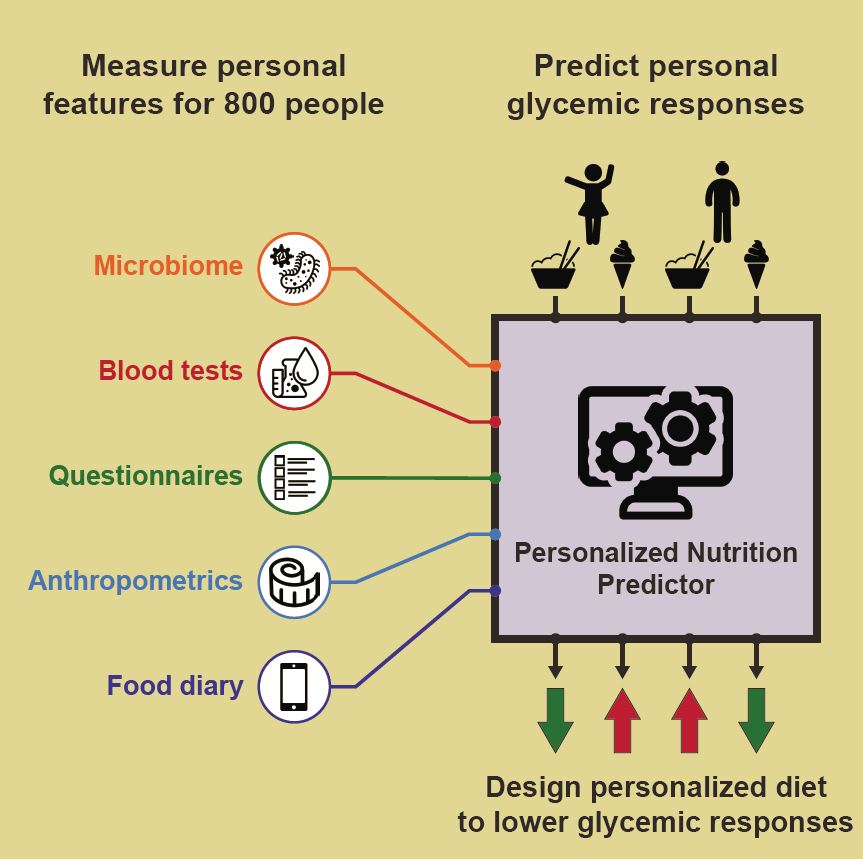You and a friend decide to lose weight as a team even though you eat exactly the same healthy meals – you gain weight, your friend loses weight. A new study says this happens because individuals metabolize the same foods differently.

According to the authors of the Personalized Nutrition Project, when participants ate identical foods they reacted in different ways – for example, some people’s blood sugar raised more after eating sushi than ice cream. They also noticed vastly different responses to the same food. Blood sugar levels are important for obesity and diabetes.
READ MORE: Healthy eating: top tips to keep you on the right path
“After seeing this data, I think about the possibility that maybe we’re really conceptually wrong in our thinking about the obesity and diabetes epidemic,” said Eran Segal, of the Weizmann Institute of Science. “The intuition of people is that we know how to treat these conditions, and it’s just that people are not listening and are eating out of control–but maybe people are actually compliant but in many cases we were giving them wrong advice.”
This graph below, taken from the study, shows responses to identical foods. In the study, participant 445 (top) had blood sugar levels that rose sharply after eating bananas but not after cookies with the same amount of calories. The opposite occurred in participant 644 (bottom).

The researchers also looked at the importance of the gut microbiome, an ecosystem of trillions of bacteria living inside our bodies. Emerging evidence shows it could play a role in maintaining a healthy weight.
In the study published in the journal Cell, the authors report this demonstrates that specific microbes indeed correlate with how much blood sugar rises post-meal.
WATCH: In the video above from the Weizmann Institute of Science, study authors Eran Segal and Eran Elinav explain how everyone responds to the same foods quite differently, and the microbiome.
Researchers believe their results are an indication that personalized nutrition is important. The scientists generated an algorithm for predicting individualized response to food based on the person’s lifestyle, medical background, and the composition and function of his or her microbiome. Their results led the scientists to question if general food guidelines are beneficial.
Personalized nutrition
An example of personal nutrition taken from the study was a middle-aged woman with obesity and pre-diabetes. The authors wrote that she tried and failed with a variety of diets for years. Turns out, the problem may be compounded by tomatoes. As the authors report, her blood sugar levels spiked after eating tomatoes, which she ate multiple times in a week.
“For this person, an individualized tailored diet would not have included tomatoes but may have included other ingredients that many of us would not consider healthy, but are in fact healthy for her,” Elinav said. “Before this study was conducted, there is no way that anyone could have provided her with such personalized recommendations, which may substantially impact the progression of her pre-diabetes.”
The study authors believe more research is needed and their results show general food recommendations don’t work; personal nutrition is critical.
“We chose to focus on blood sugar because elevated levels are a major risk factor for diabetes, obesity and metabolic syndrome. The huge differences that we found in the rise of blood sugar levels among different people who consumed identical meals highlights why personalized eating choices are more likely to help people stay healthy than universal dietary advice.”






Comments